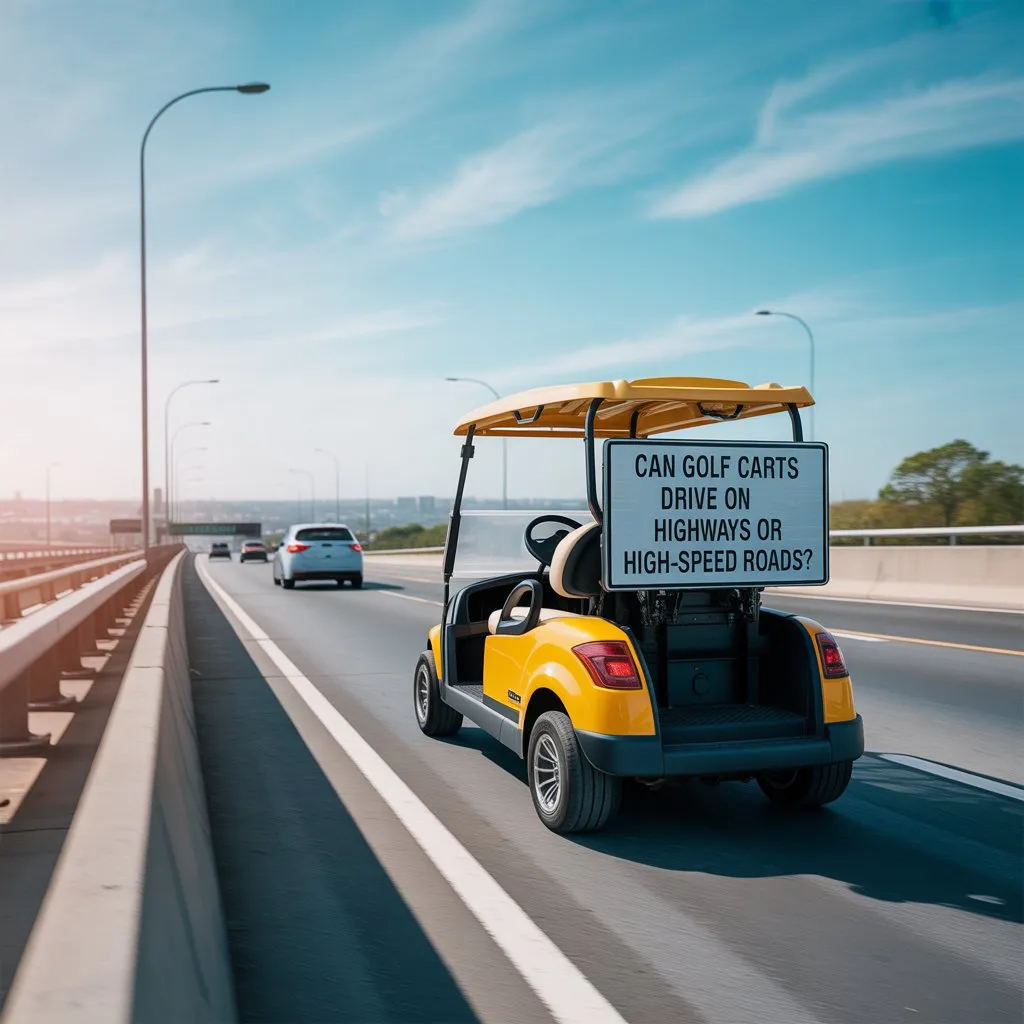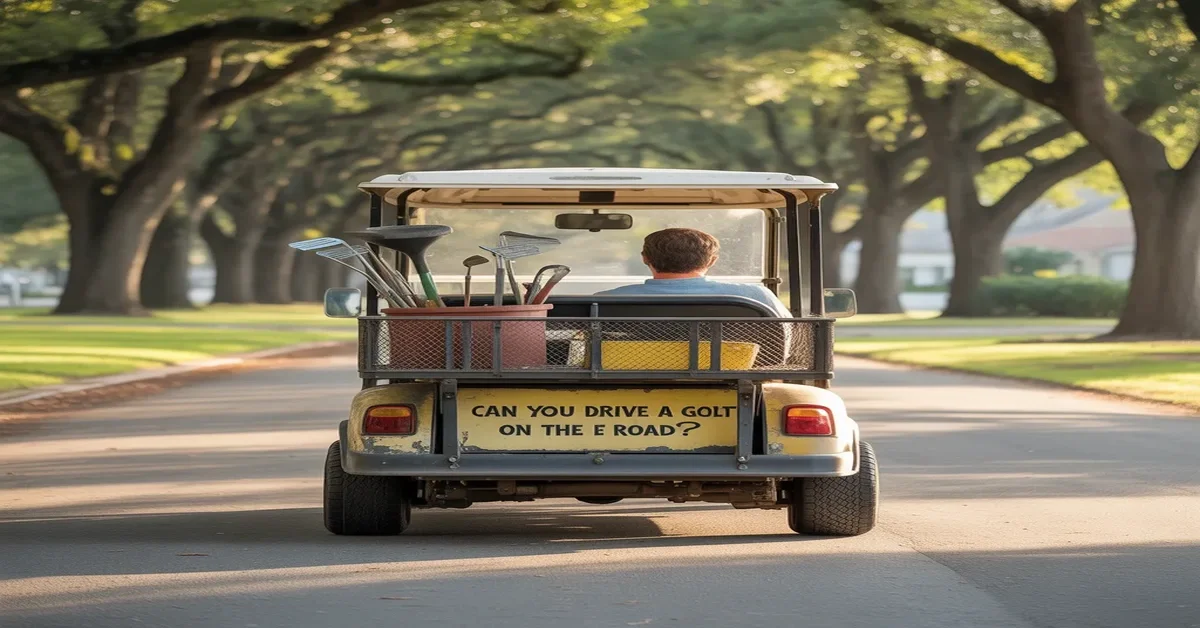Yes, you can Drive a Golf Cart on the road, but only under specific laws. Most states require registration, insurance, safety equipment, and a valid driver’s license. Golf carts are usually limited to roads with speed limits of 35 mph or less.
The rules are not as simple as you think; licenses, insurance, and state laws all play a role. Find out exactly when and where you can drive a golf cart on the road.
What You Need to Know in 2025: Golf Cart Road Laws
In 2025, you can drive a golf cart on public roads provided the cart meets specific requirements. The golf cart must be registered, insured, and equipped with safety features, including headlights, taillights, turn signals, and seatbelts. Drivers need to be at least 16 years old with a valid driver’s license. Golf carts are generally allowed on roads with speed limits of 35 mph or less, and some areas permit use on faster roads provided additional safety equipment is installed. Always check local laws for specific requirements.
Federal vs. State Regulations: Who Controls Golf Cart Rules?
Federal Regulations:
Golf cart rules are mainly controlled by state and local governments, with federal regulations providing broad guidelines. The federal government sets safety standards for low-speed vehicles.
State Regulations:
States determine where golf carts can be used, driver requirements, and specific equipment needed. Local governments may also have additional regulations, so it’s essential to check both state and local laws to ensure compliance.
Do You Need a Driver’s License for a Golf Cart?
Yes, in most areas, you need a valid driver’s license to operate a golf cart on public roads. Generally, drivers must be at least 16 years old. Some states or local jurisdictions may allow younger drivers with a learner’s permit, or may have specific age restrictions depending on the area. Always check local laws for exact requirements, as they can vary by location.
MUST READ: Do You Need a License to Drive a Golf Cart? Laws & Rules 2025!
Can You Drive a Golf Cart at 14, 15, or 16?

In most places, you must be at least 16 years old to drive a golf cart on public roads. However, some states or localities permit 14- or 15-year-olds to operate a golf cart with certain restrictions, such as driving only within a specific area or holding a learner’s permit. Always check local laws to determine the exact age requirements in your area.
Is Golf Cart Insurance Required on Public Roads?
Yes, golf cart insurance is typically required to drive on public roads. Most states require auto insurance for golf carts, similar to regular vehicles, to cover damages in the event of an accident. Requirements can vary by location, so it’s important to check local laws to make sure you meet the necessary insurance coverage for road use.See Insurance Information Institute for guidance on golf cart insurance.
MUST READ: How much is golf cart insurance? | Check Rates!
Registration & License Plates: Do Golf Carts Need to Be Registered Like Cars?
Yes, golf carts need to be registered like cars in most states if they are driven on public roads. This registration typically requires obtaining a permit or a license plate from the local Department of Motor Vehicles. Some areas may also require proof of insurance and additional safety features for the golf cart to be legally driven on the road. Always check local regulations for specific registration requirements.
Where Can Golf Carts Be Driven Legally?
Golf carts can be legally driven in neighborhoods, gated communities, and residential areas that allow low-speed vehicles. They are typically permitted on roads with speed limits of 35 mph or lower. However, specific laws and regulations vary by location, so it’s essential to check with local officials for rules on registration, insurance, and permitted areas.
Can Golf Carts Drive on Highways or High-Speed Roads?

Golf carts are typically not allowed on highways or high-speed roads. They can usually be driven on roads with speed limits of 35 mph or lower, but some areas permit them on faster roads if they meet specific safety requirements. Always check local laws for details.See the Federal Motor Carrier Safety Administration for highway safety concerns.
State-Specific Laws: Florida, Texas, and California Golf Cart Regulations
Florida
Golf carts can be driven on roads with speed limits of 30 mph or lower if fitted with the necessary safety features. Drivers need a valid license, and operation is allowed at night with proper lighting.
Texas
Golf carts are allowed on roads with speed limits of 35 mph or lower during daylight. Drivers must have a valid license, and the cart needs a golf cart license plate and required safety features.
California
Only Low-Speed Vehicles can be driven on roads with speed limits of 35 mph or less. The cart must meet safety standards, be registered, and drivers must have a valid license and insurance.
Fines & Penalties: What Happens If You Drive a Golf Cart Illegally?
Driving a golf cart illegally can result in fines, vehicle removal, and possible jail time. Fines typically range from $50 to $200, depending on the violation. Operating under the influence can lead to DUI charges, with penalties including fines up to $1,000 and license suspension. Always check local laws for specific penalties.
FAQ’s:
1: Do Golf Carts Need Insurance?
Yes, golf carts require insurance if driven on public roads, with liability coverage often being a mandatory requirement.
2: Can Golf Carts Be Used at Night?
Golf carts can be used at night if they have proper lighting, such as headlights and taillights.
3: What Speed Limits Apply to Golf Carts?
Golf carts are typically allowed on roads with speed limits of 35 mph or lower.
4: Can Minors Drive Golf Carts?
Minors can drive golf carts in some areas, but most places require drivers to be at least 16 with a valid license.
5: Are Golf Carts Allowed on Highways?
Golf carts are usually not allowed on highways or high-speed roads.
Conclusion:
Golf cart regulations vary widely depending on the state and local laws. To avoid fines or penalties, always make sure your golf cart is registered, insured, and meets safety standards before driving it on public roads. Checking local regulations is crucial to ensure legal and safe operation.




Join The Discussion